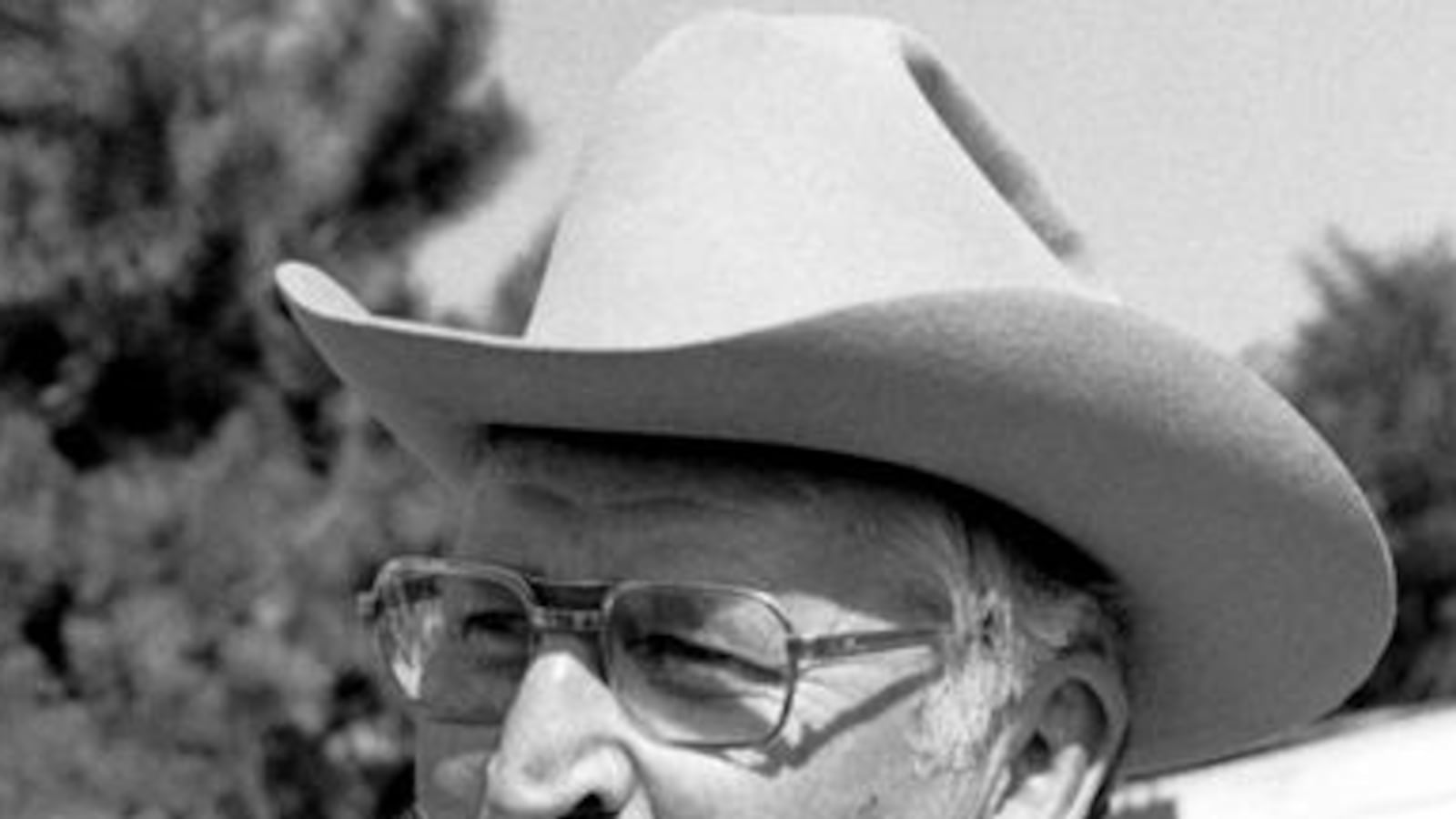Today's post-debate interest in bayonets offers a fragment of an excuse to reproduce this delightful Peter Worthington column from the old Frum Forum.
Worthington:
I first spotted him at a banquet and awards ceremony in Seoul, marking the 50th anniversary of the Korean war – a grizzled old colonel with a white handlebar moustache and the Medal of Honor around his neck.
But what caught my attention was two Canadian war medals nestled among the 26 medal ribbons he wore – the Canadian Volunteer medal with overseas clasp, and Victory medal from WWII.
“How come?” I asked him.
A mischievous grin spread his face. He introduced himself – Col. Lewis Lee Millett, a storied American fighting soldier, although I didn’t know it at the time.
“I got the Medal of Honor thanks to the Canadian army,” he quipped. “The Canadians taught me bayonet fighting, and I led a bayonet charge in the Korean war.” He paused, waiting for inevitable questions.

I was with my friend, Vince Courtenay, both of us Korean vets from the same battalion of the Princess Pats in Korea.
Millett, then around 80 years old, told how he’d joined the U.S. army at age 21 in the summer of 1941 – and then deserted, because the U.S. wasn’t yet in the war. He came to Canada and joined our army to go overseas. He wanted to fight Nazis. “As I recall, the Canadian infantry was always doing bayonet training – stabbing straw-filled dummies, parry, thrust, shouting. It made an impression on me.”
After Pearl Harbour, when the U.S. entered the war, he transferred back to the U.S. army, served in North Africa and Italy, winning the Silver Star. When paperwork caught up with him that he had deserted in 1941, his commanding officer court-martialed him – fined him $50, and promptly promoted him to 2nd lieutenant.
“I believe I am the only colonel in the regular army who was ever court-martialed and convicted of desertion,” he laughed. In Korea, he also won the Distinguished Service Cross, next to the Medal of Honor in prestige, but he seemed inordinately proud of his two Canadian medals.
In the ferocious fighting of early 1951, Millett recalled reading a document that said the Chinese believed American soldiers dreaded hand-to-hand combat, and were fearful of “cold steel.”
“We’ll see about that, you sons of bitches,” he muttered. At a feature called Hill 180, under grenade and rifle fire, he led two platoons in a bayonet charge up the hill.

“I always had my men fix bayonets,” he said. “I never forgot the Canadian training. We didn’t do much bayonet drill in those days, but I gotta say, those Chinese didn’t know what hit them when we charged.”
Millett led the way and routed the Chinese. His Medal of Honor citation reads: “His dauntless leadership and personal courage so inspired his men that they stormed into the hostile position and used their bayonets with such lethal effect that the enemy fled in wild disorder.”

In the Vietnam war, Millett was involved in a clandestine intelligence program aimed at subverting and killing Viet Cong in the countryside. He retired in 1973 when he felt the U.S. was abandoning South Vietnam.
He once told an interviewer: “I believe deeply in freedom. I’ve fought in three wars, and volunteered for all of them . . . I believe as a free man it is your duty to help those under the attack of tyranny. It’s as simple as that.”
Lewis Millett, old soldier, died on Nov. 14, age 89: A free man, a brave man, an American patriot.




